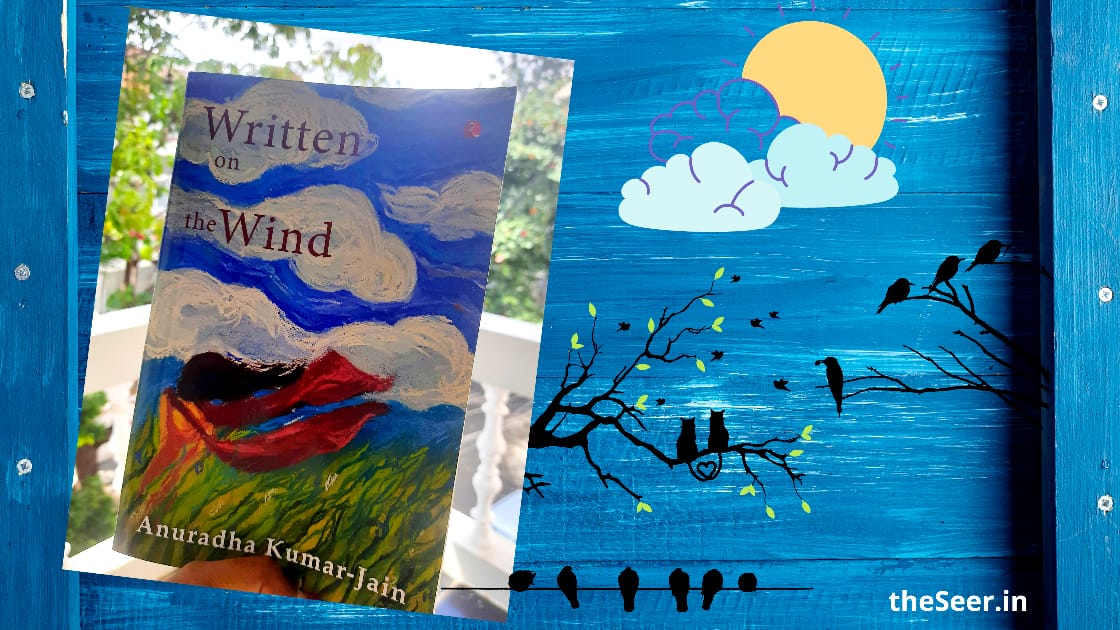I was angry when I finished reading Anuradha Kumar-Jain’s Written on the Wind. I wanted to know more about what happened to the protagonists. I had so many questions to ask. But the book was over and I knew I must live with this reader’s curse unless Anuradha plans to write a sequel. So, I couldn’t help but be angry. A part of me suggested that my anger probably is triggered by the ‘series-watching symptom’ of this generation. Except there was more to my anger.
Anuradha Kumar-Jain is a writer and an astrologer. Written on the wind is her debut novel. Set in the pre-independence era, this is the story of two women whose fates are entwined to each other and with the partition of India. Born and raised elsewhere, life brings Harjeet and Amiya to Lahore, setting in motion a steady string of complicated events. With the freedom struggle and partition in the backdrop, we get to watch these two women fight the hardships of being a woman.
The characters of these protagonists are so intricately set that you almost want to complain about not making it easier for you to decide the right and the wrong. Both having suffered a difficult childhood, deserved all the love in the world. Yet, life picks the toughest of ordeals for them and that makes me angry. Even if there are a handful of conveniently-progressive men around, their reluctant efforts to empower these women, get nullified thanks to the sea of women who act as flag-bearers of patriarchy. Every time these women break a wall, there comes a new form of internalized misogyny imprisoning them once again. How can I not be angry?
I am also grateful that these women are strong. Despite all the pain, they do not crumble and wither away. Instead, they thrive and find love in the most unexpected of places. Even if their happiness wasn’t as long-lasting as I would have asked for, I loved watching them fall in love and burn in their desires. Although it is difficult to believe that someone could keep up an affair for so many years without being found out, I might have secretly rooted for them to stay in love. After all, they deserved to be loved and respected for the individual that they are.
The book is also full of ironies, thanks to the complexity of the characters. You have a man who was progressive enough to marry a widow and raise her son as his own. Yet he would betray another innocent woman for his selfish reasons. There is the other man who tells his female friend her husband was foolish to leave her and yet he denies his wife the attention that she rightfully deserves. And then there is this betrayed woman who comes dangerously close to infidelity for a second time.
The book serves as a refresher to some of the historical events of the freedom struggle. The author aptly captures the political mood of individuals and various communities as the movement progresses. The book touches upon the many sacrifices and the turmoil that followed the partition. We also get a little peek into the culture of the various faiths and households in Lahore that shaped the social constructs of the country.
It is a breezy read thanks to the lucid and gripping narrative. The biggest surprise for me though was Lahore itself. The Lahore, in Anuradha’s Written on the wind, is incredibly beautiful and lively. She surely did make me fall in love with Lahore and I am almost aching to visit Pakistan for the first time in life. I am also secretly hoping for a literary happenstance to meet Anuradha so I can cajole her into telling me more about Harjeet and Amiya. So dear readers, I say go for it if you are up for an engaging tale of love and longing.


